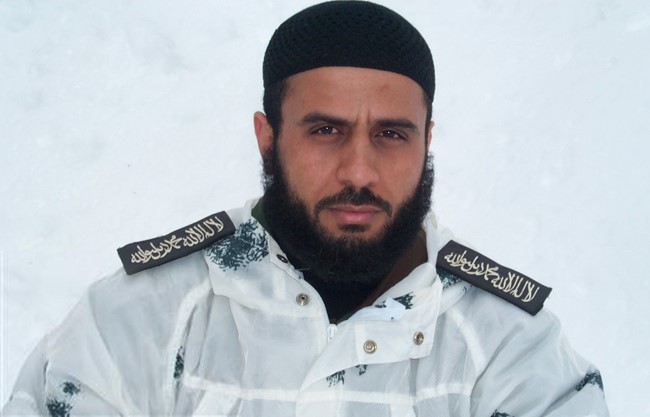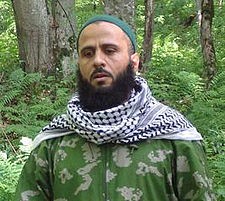Andrew McGregor
December 1, 2011
A prominent member of Jordan’s Muslim Brotherhood has given an interview to an Amman daily in which he discusses the differences between the struggle for political reform inside Jordan and events elsewhere in the tumultuous “Arab Spring” (al-Dustur [Amman], November 24). Rahil Gharayibah is the deputy secretary-general of Jordan’s largest single political party, Jabhat al-Amal al-Islami (JAI – Islamic Action Front) and a frequent spokesman on its behalf. Founded in 1992, the JAI is generally regarded as the political wing of the Jordanian Muslim Brotherhood.
Rahil Gharayibah
Gharayibah acknowledges that, as part of the Arab world, Jordan is experiencing a “critical stage” in its development. Sharing a common culture and system of values with the rest of the Arab nation, Jordan cannot be isolated or immune from the developments shaking the political structure of its neighbors. According to Gharayibah, however, Jordan was already ahead of other Arab nations in their pursuit of democracy by having already adopted “a model that is closer to democracy than the systems adopted by the other Arab states.” While the revolutions in Tunisia, Egypt, Syria, Yemen and Libya have been conducted under the slogan “Overthrow the Regime,” the Jordanians have raised the slogan “Reform the Regime.”
This has not, however, precluded the participation of the Brotherhood in demonstrations calling for the dissolution of parliament and the resignation of Prime Minister Dr. Marouf Sulayman Bakhit, a former Major-General whose reform efforts were ineffective, leading to his eventual resignation in October after only 8½ months in power. Bakhit’s reluctance to reopen the constitution for major changes was a sticking point with the Muslim Brotherhood, which seeks constitutional reform.
For Jordan to move forward, all the influential parties in the process must agree that “reform and change are inevitable.” Describing Jordan’s people and political parties as “extremely mature,” Gharayibah says they are seeking “genuine reform and the establishment of a democratic, civil and modern state of Jordan under a monarchist umbrella.” The existing system is illegitimate as it is based on vote rigging and founded upon “tribal, provincial, geographical and regional bases… The number of those who were elected on political merit can be counted on the fingers of one hand.”
Though the Brotherhood is advocating a type of constitutional monarchy for Jordan, Gharayibah has still been a harsh critic of King Abdullah II’sexisting powers. In a rally held in Amman in September, Gharayibah insisted that Jordanians would “not be slaves or serfs on anyone’s estate… Is [Jordan] an estate owned by one person? Are its people his serfs?” (al-Akhbar [Beirut], September 3).
The Jordanian Brotherhood’s leader, Hammam Sa’id, has demanded the cancellation of the Wadi Araba Agreement, the 1994 treaty that normalized relations with Israel and banned attacks on Israel launched from Jordanian territory (al-Akhbar, September 3). The Jordanian Brotherhood enjoys strong support from Jordan’s Palestinian community but avoids open support for militant groups other than Hamas, the political wing of the Gazan Muslim Brotherhood. Gharayibah maintains that reform efforts in Jordan do not conflict with the Palestinian liberation project: “Indeed, the two are twins. The Jordanian national reform plan is one of the most important mainstays of the Palestinian liberation project… The birth of the Jordanian reformist national project is the most important strategic step in confronting the expansionist, colonial-style and Zionist plan.”
Regarding the movement’s strategy, Gharayibah says the group will end its participation in the political reform process if it is seen as thwarting progress towards democracy or if it loses the support of the man-in-the-street. Otherwise, “the Islamic movement’s methodology is to participate when that enables it to serve the homeland and the citizen.”
The Jordanian Muslim Brotherhood is considered to be closely tied to the Syrian Muslim Brotherhood and has been very vocal in its support for the opposition Syrian National Council. Though it rejects Western intervention in Syria, it favors an “Arab solution,” including military operations by Arab states, to resolve the Syrian political crisis (Jordan Times, November 24).
This article first appeared in the December 1, 2011 issue of the Jamestown Foundation’s Terrorism Monitor.


